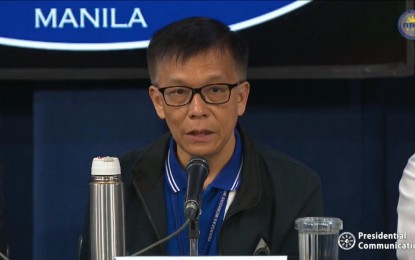The Department of Trade and Industry (DTI) expects sales of automobiles to reach almost 1 million units by 2025, despite the possible increase in excise tax on cars under the proposed tax-reform package of the Duterte administration.
While the Tax Reform for Acceleration and Inclusion (TRAIN) Act could make cars more expensive, Trade Assistant Secretary Rafaelita M. Aldaba said the reduction in income tax would help increase demand for automobiles.
“The country’s economy is growing and the income-tax cut would help car sales reach 990,000 units by 2025,” Aldaba told reporters in an interview on the sidelines of the 2017 Manufacturing Summit held in Makati City on Wednesday.
In her speech during the summit, Aldaba cited the bright prospects of auto manufacturing, given the ongoing rollout of the Comprehensive Automotive Resurgence Strategy (CARS) Program.
“For the CARS, the industry has seen a continued increase with sales reaching 400,000 units in 2016—this is four times the sales just a decade ago. The growth rate is at 24 percent. By 2025, 2026 and 2027, forecast has shown that the Philippines will be selling 1 million units,” she said.
Under the road map for the manufacturing sector, there will be more focus on the promotion of high-value added activities, such as chemicals, iron and steel industries, and technology-based industries from 2018 to 2021.
Among the favored manufacturing sectors is the automotive sector. An automobile has over 30,000 parts linked through various tiers covering raw materials, intermediate parts from manufacturing to services.
Manufacturing a vehicle entails the production of electronics, chemicals, steel, other metals and glass, and from the services side, this covers marketing and sales.
Automotive, said Aldaba, also has one of the highest multipliers, or “spill-over
effect,” based on research. Studies show that the auto sector has an output multiplier of 3.56 and employment of 169 people for every P100 million invested in it.
The CARS program counts Toyota and Mitsubishi as registered participants. Toyota, based on its proposal, will spend P5.741 billion to produce 230,000 units with additional 560,000 jobs generated for the duration of the six-year program. Toyota has enrolled five local parts makers to localize the components. Mitsubishi will be producing some 200,000 units and a similar investment of P 5.74 billion. The foreseen direct employment is at 700,900, and some 30 parts makers participating in CARS under Mitsubishi
To further fuel the industry’s growth, the Board of Investment’s Investment Priorities Plan (IPP) included more manufacturing activities as eligible for incentives.
In the 2014-2016 IPP, only eight manufacturing sectors were covered (motor vehicles, aerospace parts, shipbuilding and parts, tool and die, pulp and paper, chemicals, copper wires/rods and iron and steel). Under the current IPP, agro-processing, strategic services (like integrated circuit design), creative industries, aircraft maintenance, repair and overhaul, and innovative and inclusive industries like alternative-energy vehicles, telecom, as well as establishments investing in energy-efficient facilities are included.
Sustained growth
The DTI is also confident that the manufacturing sector will sustain its growth momentum and expand by 10 percent next year.
“We’re seeing the resurgence of manufacturing. We’ve seen 9.4 percent in the past quarter. Hopefully, we can reach over 10 percent, and it’s possible to sustain maybe 10 percent to 11 percent, but not on the same drivers as before,“ Trade Secretary Ramon M. Lopez told reporters in an interview on the sidelines of the summit.
“That’s why we should put policies like encouraging imported products to be made here, and those technology-based manufactured goods,” Lopez added.
According to Lopez, citing government data, manufacturing growth has reached 8.3 percent from January to September. In the third quarter alone, the sector expanded by 9.4 percent.
This forecast on manufacturing can be boosted by the resolution of the Marawi conflict and the sustained public support of the government, Lopez added.





























